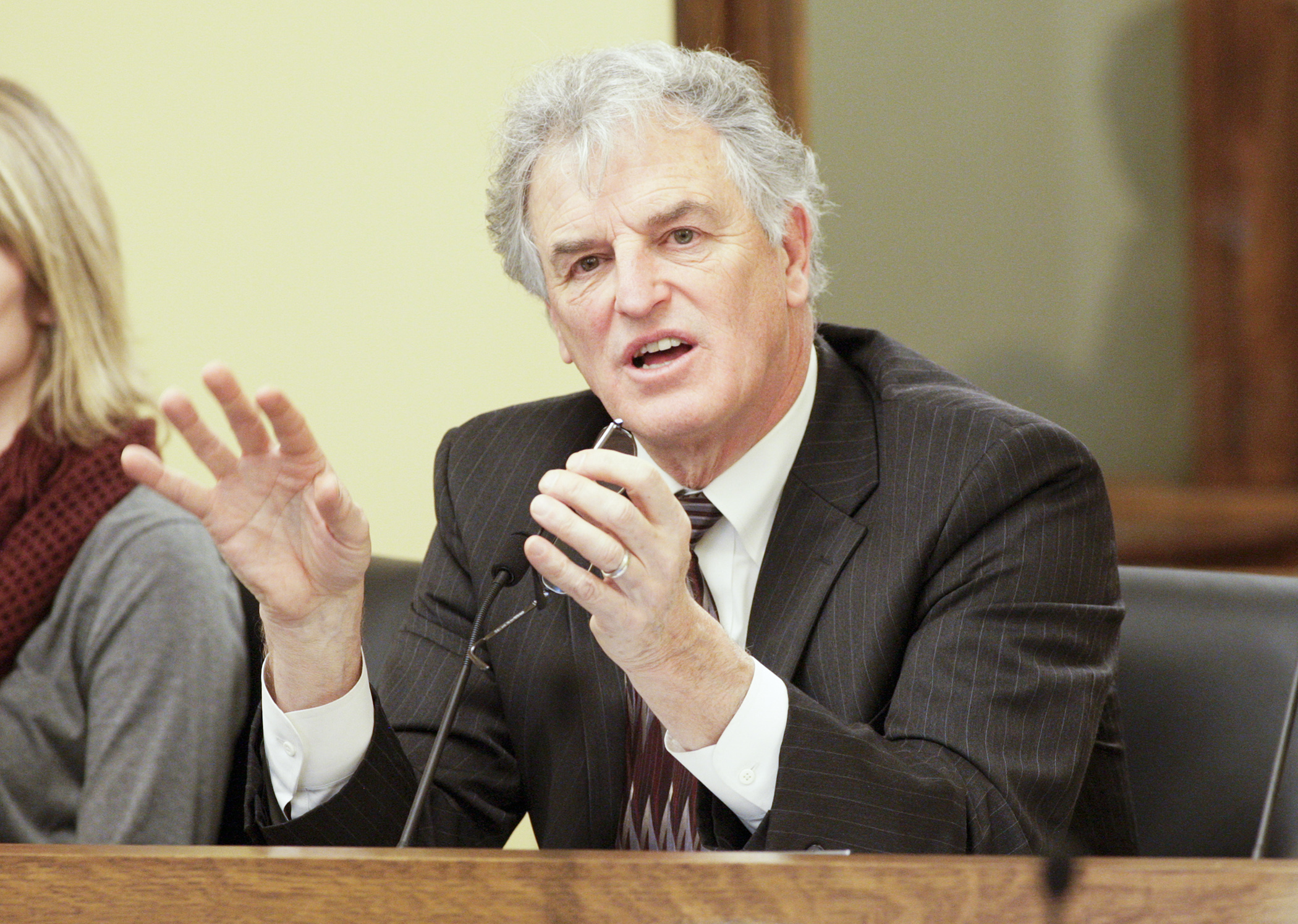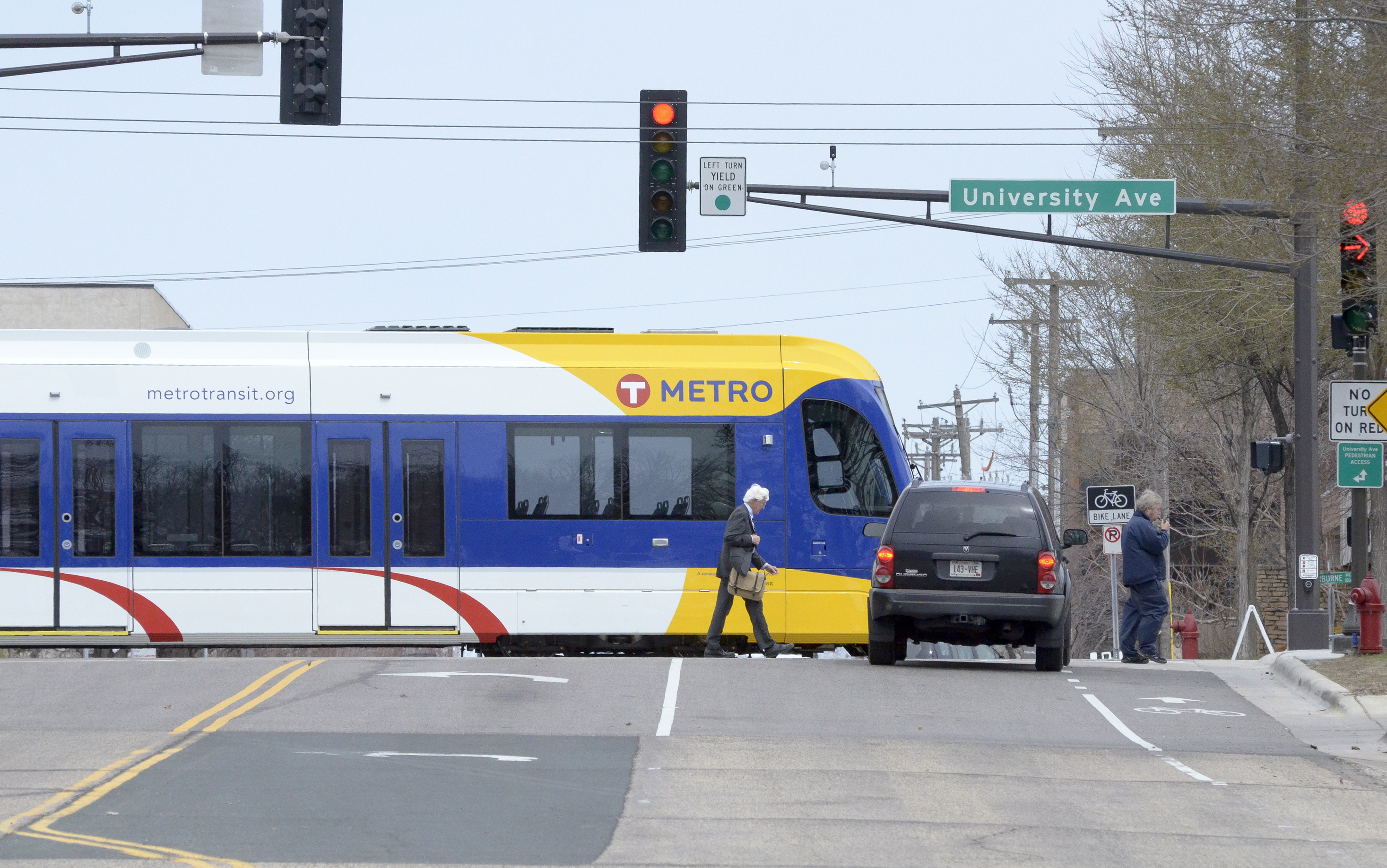Big changes brewing for Twin Cities transit funding?

The head of the Counties Transit Improvement Board discussed a plan Tuesday that would dissolve the regional transit funding board and remove the role of the Legislature in funding construction of new rail and bus rapid transit lines in the Twin Cities.
The plan, laid out by CTIB Chair and Hennepin County Commissioner Peter McLaughlin before a joint House and Senate transportation hearing, would eliminate the board and allow member counties to double the sales tax collected to fund transit projects like the Green Line light rail route between the downtowns of Minneapolis and St. Paul.
Created in 2008, CTIB provides nearly one-third of the funding for regional transit projects through a quarter-cent sales tax collected in Anoka, Dakota, Hennepin, Ramsey and Washington counties.
Carver and Scott counties declined to join the board when it was created. Dakota County voted last year to begin the three-year process of exiting the transit funding partnership.
McLaughlin praised the board’s successes, saying CTIB — little-known but critically important in Twin Cities transit — helped expedite construction of the busy Green Line and the new A Line, a rapid bus line running along Snelling Avenue.
 A Green Line train near the State Capitol in St. Paul. House Photography file photo
A Green Line train near the State Capitol in St. Paul. House Photography file photoBut securing the required 10 percent state share of capital costs has become burdensome, McLaughlin told lawmakers, and has held up projects like the Southwest Light Rail Transit line from downtown Minneapolis to Eden Prairie.
“The consistent issue, the consistent thing holding these [transit] lines up” is a lack of state funding, McLaughlin said Tuesday.
The state share of the proposed Southwest line presented a major roadblock to reaching agreement on a broad transportation funding bill during the 2015-16 session, with House and Senate Republicans arguing that the state should get out of the business of helping pay for transit lines.
That has left local officials and metro area transit planners scrambling for a way to fund new transit projects. Dissolving the metrowide board and returning control over transit projects to a county-by-county level may be the way to do that, McLaughlin said.
“Our assumption is the lack of state funding will continue to delay [planned] projects,” he said.
Lawmakers were largely silent on the issue during the hearing. Rep. Paul Torkelson (R-Hanska), chair of the House Transportation Finance Committee, noted, though, that CTIB’s future would be a major piece of discussions on a transportation funding plan going forward.
All five member counties would need to vote for the dissolution of CTIB, and agreements would need to be struck on the board’s remaining funding commitments and responsibilities.
And, while the state would no longer be on the hook for 10 percent of capital costs related to new mass transit construction projects, it would still help fund Metro Transit’s transit operations.
Related Articles
Search Session Daily
Advanced Search OptionsPriority Dailies
Legislative leaders set 2026 committee deadlines
By Lisa Kaczke Legislative leaders on Tuesday officially set the timeline for getting bills through the committee process during the upcoming 2026 session.
Here are the three deadlines for...
Legislative leaders on Tuesday officially set the timeline for getting bills through the committee process during the upcoming 2026 session.
Here are the three deadlines for...